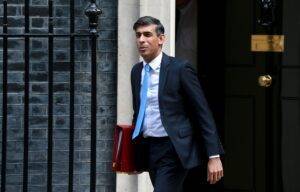Currency traders are increasing their bets against sterling ahead of Wednesday’s Budget, fearing that Rachel Reeves’ tax and spending plans could further weaken the UK’s already fragile economic outlook.
Data from CME Group shows trading volumes in put options — contracts that profit from a fall in the pound — have outpaced bullish call options by more than four to one over the past week. The surge suggests investors are bracing for a Budget that could push sterling lower.
Dominic Bunning, head of G10 FX strategy at Nomura, said the pattern “points to a market that is well positioned for a challenging outcome for the pound.”
The pound, already close to its weakest level against the dollar since April, traded at $1.312 on Tuesday, after weeks of soft economic data and falling inflation encouraged traders to price in earlier Bank of England rate cuts — typically a drag on a currency.
Investors are worried that Reeves’ expected package of tax rises will darken the growth outlook or undermine confidence in the government’s ability to manage its fiscal position. Some fear that a poorly received Budget could place political pressure on the Labour leadership, adding further volatility.
Mark Dowding, chief investment officer for fixed income at RBC BlueBay, said it was “hard to see how Reeves delivers an outcome which looks bullish for UK growth,” adding that he has been betting on further sterling weakness against both the euro and the dollar.
Traders are also speculating that Reeves might introduce measures aimed at reducing inflation — such as a cut to VAT on energy bills — which could accelerate expectations of interest rate cuts and weigh further on the pound.
CME data shows sterling puts expiring on Budget day are significantly more expensive than calls, a sign that markets see sterling weakness as more likely than strength. The pricing skew is at its highest since January, when traders anticipated volatility around Donald Trump’s inauguration.
Chris Povey, head of FX options at CME Group, said: “We are seeing people trade sterling puts more intensively.”
However, analysts note that a well-received Budget — one that creates fiscal headroom and reassures markets about next year’s tax plans — could spark a relief rally in the currency. Kamal Sharma, director of G10 FX strategy at Bank of America, described the Budget as “the single most significant binary event of the year for sterling.”
But others warn that sterling remains vulnerable to concerns about high government borrowing, limited revenue-raising options, and political uncertainty.
“If the market doesn’t see enough signs of fiscal consolidation and credibility,” Nomura’s Bunning said, the pound could fall alongside long-dated gilts — a pattern seen more often in recent years.
Steve Englander, head of FX research at Standard Chartered, said sentiment around the UK remains bleak. “I haven’t heard anyone say good news about sterling or the UK in the last three months,” he said, citing the economy’s lack of momentum, high spending and constraints on tax rises.


















